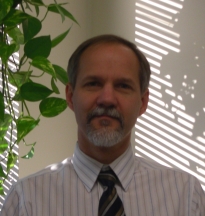What every researcher should start doing in 2022

Another year has gone by when many researchers continued to work with COVID-19–related challenges, although perhaps with a little more confidence than before. What are some things they should start doing in 2022 to make it a productive and successful year? We asked this question to a diverse set of colleagues at CACTUS who, through the roles they play, have personally gained rich insights into the changing research/publishing landscape and its implications for researchers. Here’s what they had to say:
Dr. Donald Samulack
Head, Global Stakeholder Engagement

With a PhD in medical physiology and a specialization in neuroscience, Dr. Samulack is actively involved in supporting the publication needs of the academic community and raising the level of awareness and professionalism of good publication practices, worldwide. He understands the logistics of scholarly publication, author support, and research communication needs. He is a major player in shaping perceptions and defining workflows to accelerate science.
Researchers are bombarded with a lot of information, and quite honestly, it is their job to make sense of it all. However, these days the level of information “noise” and potential distraction has skyrocketed. Everything has changed due to the COVID pandemic, and the resulting stresses have altered our ability to focus on what is important to be successful in one’s research endeavors.
Journals, social media, resource sites, e-mails, and various other information feeds can all be overwhelming...not to mention the data coming out of the lab, and your own research environment pressures. In addition, we all have a weakness toward our own mental-escape addictions (Netflix, TikTok, etc.).
For a researcher to be successful in 2022, they will need to filter information and reduce the number of channels of content they pay attention to. The key to research success in 2022 will be to be laser-focused on what is important, and only focus on the channels of information that offer a high scholarly return for one’s time invested.
This will, of course, be different for every person, every discipline, every environment, and every geography. However, the need to focus and reduce the information noise will be absolutely critical to success in 2022.
Clarinda Cerejo
Senior Director, Thought Leadership

Clarinda has spent over 15 years working with researchers to help them succeed in their professional and personal lives. She is passionate about improving the way science is communicated so that it achieves the impact it is meant to have.
There are plenty of options now available for researchers to get their research findings out to the world beyond academic circles that read journals they publish in. In 2022, I would encourage researchers to step out of their shell or comfort zone and try something new: This could mean writing a plain-language summary of their work (what was done, what was found, why it’s important) and sharing it on LinkedIn or Medium; tweeting out a link to their published paper and tagging academics they look up to; publishing a preprint before submitting their article to a journal; or talking to a science journalist about their published work. Once researchers start thinking about spreading the word, they’ll be surprised at the world of opportunities that open up to them!
Dr. Shilpi Mehra
Head, Publication Support Services
A dentist by training, Dr. Shilpi Mehra majored in Epidemiology and Biostatistics in her Masters programs at Boston University and the Free University of Amsterdam. Before joining Cactus, she worked at the National Health Service (NHS) and Imperial College London for over 10 years, managing research delivery and auditing public health programs. She is passionate about using her experience to support authors through their publication journeys.
Start planning for the year ahead!
Publishing research is getting more challenging by the day. With the quantum of work that is being done, it is imperative now, more than ever, to plan how you want your year to look like.
Here are some suggestions to help you get to where you want to when the end of year arrives:
- Think about which pieces of work will be ready for writing in the second half of the year.
- Identify colleagues in your field who would be happy to read early drafts and share inputs on gaps and potential improvements. Keep them up to speed on how things are progressing, so that they can give you relevant continuous feedback.
- Several companies offer publishing support in the form of technical reviews of your manuscript by subject area experts. Use these in the early stages to fix issues with methods, gaps requiring repeat experiments, or ethical requirements.
- If any of your articles will not be ready in your publishing year, work toward making them ready for the following year (rather than publishing half-baked research).
Good luck with achieving your publication goals!
Christine Hu
General Manager, China

Christine oversees the commercial activities of the Greater China region and serves as the company’s external representative in China. She comes with rich experience in marketing, communications, and government relations in the publishing, information service, clinical solutions, and pharmaceutical industries. Before joining CACTUS, Christine held leadership positions in the R&D-based Pharmaceutical Association Committee and Wolters Kluwer China, and she was also associated in senior roles in China Daily.
Researchers at different stages of their careers can make note of the top three things that helped them manage uncertainty caused by the COVID-19 pandemic over the past two years in their academic work. They can then share these with early career researchers who may be struggling to deal with the complexities of the academic world in addition to pandemic-related challenges. Sharing these insights can help early career researchers understand how they can cope with failures and regrets, how to maintain a positive attitude through difficult times, and how to find ways to explore big opportunities in an uncertain future.
Andrea Hayward
Senior Associate, Global Community Engagement

Coming from an educational background in Psychology, Andrea has always been a passionate mental health advocate. Over the last 2 years, she has been managing the CACTUS Mental Health Survey and several other related initiatives. She is also one of the hosts of Researcher.Life Voice—a virtual community platform that empowers researchers to connect, share, support, and grow.
In 2022, I believe that researchers should start taking better care of themselves. They should start treating their health and wellbeing—both physical and mental—as a priority rather than an afterthought. The toxic work culture of academia might make them feel like they’re not doing it right, if they’re not working ALL the time. But this is absolutely not true! In 2022, I wish and hope that more researchers realize that their value is not determined by their productivity and that they don’t have to earn their breaks. I hope they begin to see that poor mental health and extreme stress are not a rite of passage that they have to go through, that they are deserving of care, and that asking for help doesn’t make them weak or unprofessional. In 2022, I hope more researchers understand that they don’t have to work themselves until the point of burnout, and that it’s okay for them to progress along their academic journey at a pace that suits them.
Comments
You're looking to give wings to your academic career and publication journey. We like that!
Why don't we give you complete access! Create a free account and get unlimited access to all resources & a vibrant researcher community.














